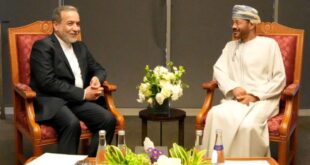 The United States said there was potential merit to Iran’s nuclear transparency deal with UN inspectors, after earlier branding it a diversionary gambit to forestall tougher UN sanctions. The US envoy to the International Atomic Energy Agency spoke after IAEA officials assured skeptical Western missions that the pact was just a first important step toward creating confidence in Iranian nuclear intentions.
The United States said there was potential merit to Iran’s nuclear transparency deal with UN inspectors, after earlier branding it a diversionary gambit to forestall tougher UN sanctions. The US envoy to the International Atomic Energy Agency spoke after IAEA officials assured skeptical Western missions that the pact was just a first important step toward creating confidence in Iranian nuclear intentions.
Iran is required to answer outstanding questions about past sensitive atomic activities by a rough deadline of year-end under the “work plan,” which faces critical debate at a meeting of the 35-nation IAEA board of governors next week.
“The work plan outlines a potentially important process for clarifying historical questions, if Iran cooperates fully and quickly,” US Ambassador Gregory Schulte told several invited reporters in Vienna, headquarters of the UN watchdog agency.
“But the work plan is limited to historical questions. It does not provide for full (IAEA) verification of current activities or address Iran’s continuing uranium-enrichment activities.”
However, diplomats say Iran has probably won itself a reprieve from stiffer sanctions for a few months since Russia opposes them as long as Iranian-IAEA cooperation is proceeding.
The Islamic Republic has said it is serious about honoring the cooperation plan but also vowed anew not to stop enriching uranium for nuclear fuel, which Tehran says is for electricity generation, not a covert atom bomb project as the West claims.
A day after the IAEA announced the pact with Iran, calling it a “milestone,” Schulte said the plan had “real limitations” and suggested Tehran had “manipulated” the IAEA into allowing it to make a play of cooperation to head off more sanctions.
His remarks angered agency officials. One said it appeared the United States, which has not ruled out last-resort attack on arch-foe Iran to knock out its nuclear facilities, was mounting a “deliberate campaign to derail” Iranian-IAEA rapprochement.
But UN officials have assured Western missions that counter to impressions created by the pact’s woolly language, the IAEA could raise more questions if new suspicions arose after current issues were resolved.
 Eurasia Press & News
Eurasia Press & News



